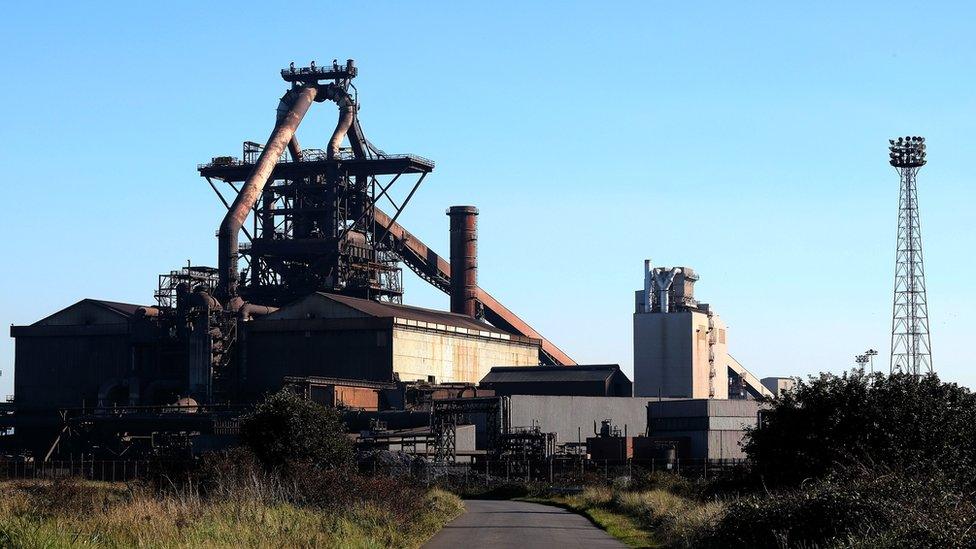Why British steel is in crisis
- Published
- comments
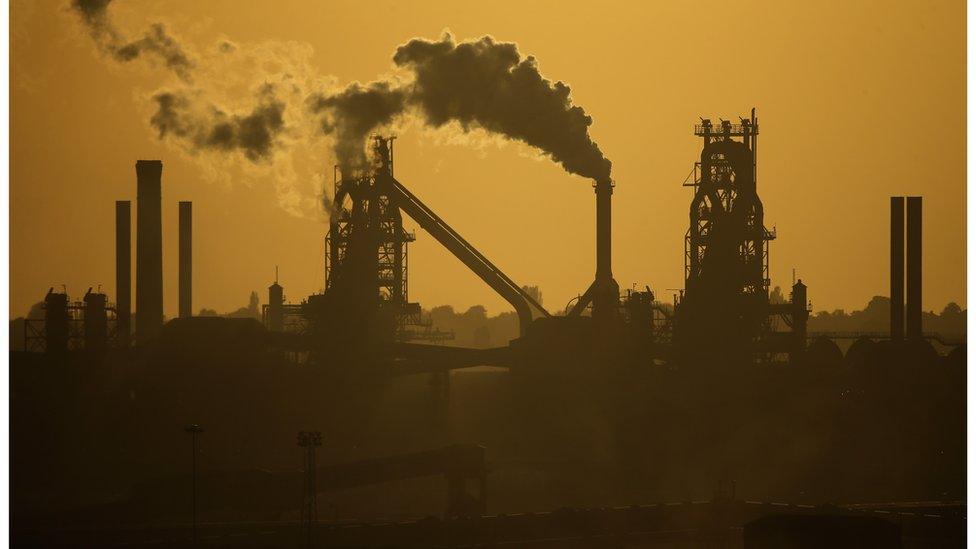
Scunthorpe's steelworks is just one of many steel businesses that has faced difficulties
The British steel industry is in crisis. Tata Steel yesterday became the third company to announce job losses in recent weeks and it seems that as many as one in six of the remaining 30,000 steel jobs could now go. A sector that weathered the global recession of 2008 and 2009 is struggling amid a weak global recovery.
The steel industry's problems are global. Yesterday as Tata Steel announced its UK job cuts, South Korean giant Posco (the world's fifth largest steel producer) reported its biggest quarterly loss in five years.
And state-owned Chinese steel trader Sinosteel missed an interest payment due on its debts.
Global steel processing has halved since 2011 amid a general rout in the price of commodities. And its value has fallen by a third since the turn of the year, reaching a price last seen during the depths of the recession in early 2009.
The World Steel Association (WSA) now forecasts that global steel demand will contract by 1.7% this year, largely driven by a drop in Chinese demand.
China drove the industry
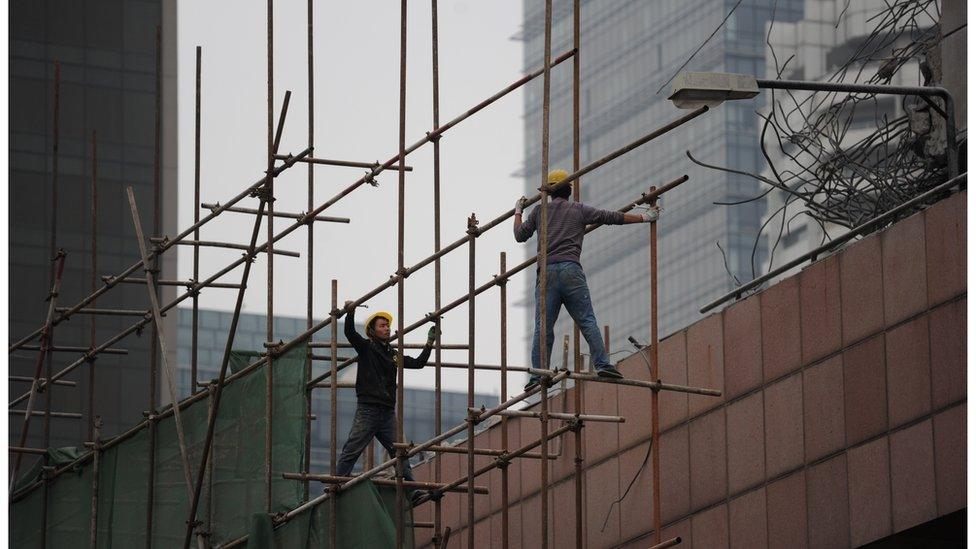
China's slowing economy has effected global demand for steel
It's difficult to overstate the importance of China to steelmakers. China's rapid industrialisation has driven global metals demand for a generation. In 2013 it represented almost half of global steel usage.
According to the WSA global steel usage rose from 1,220 million tonnes in 2007 to 1,430 million tonnes in 2013. During that same period, Chinese steel use rose by 280 million tonnes.
In other words China was responsible for more than 100% of the global increase in steel demand in the last seven years. By comparison steel usage in Europe over the same time frame fell by about 30%.
Whether you believe the official figures or not, it is clear that China's economy has slowed. And it is also clear that the most steel-intense parts of that economy - things like construction and capital investment - have slowed more sharply.
China is left with a steel industry plagued by over-capacity and, rather than cutting production and jobs, state-owned companies are reacting by exporting that excess steel to international markets at prices which many firms simply can't match. Hence the charge of "dumping" - or selling at subsidised (and unfair prices) to, in effect, "steal" global demand.
When it comes to steel, China has effectively transformed from the industry's biggest customer to its deadliest competitor.
The WSA, in its most recent update, external, was in an understandably gloomy mood. The best days for steel - for the short- to medium-term at least - appear to be behind it. The chairman of the World Steel Economics Committee noted that "it is clear that the steel industry has, for the time being, reached the end of a major growth cycle which was based on the rapid economic development of China."
The ending of that growth cycle leaves the industry stuck with excess capacity and - short of a new major industrialisation cycle emerging somewhere in the world - for prices to return to a level consistent with a profitable steel industry, global capacity will have to fall.
That's the process playing out in the UK at the moment.
Is the UK powerless?
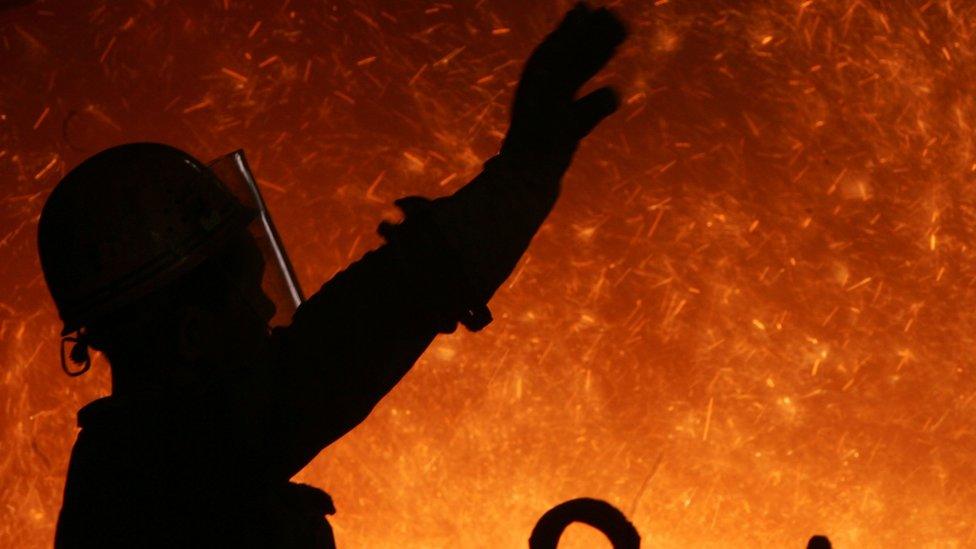
Would France or Germany have tried harder than the UK government to save a domestic steel business?
None of which though means that the UK steel industry has to bear the brunt of a global restructuring.
I was in Scunthorpe yesterday as Tata announced job losses. Both management and the trade unions were singing from the same hymn sheet, talking of the need for what they called "a level playing field", not so much with China as with their European peers.
Both point to high energy costs in the UK - driven by both green taxes and our energy mix (French nuclear power for example being much cheaper) and to UK business rates being higher than those on the continent.
It's worth noting that, while the UK does have a lower rate of corporation tax than much of Europe, corporation tax is paid only on profits and a lower tax on profits isn't much help to an industry that is making losses.
There's also a sense that European Union rules disallowing state aid (effectively subsiding national companies) are employed far more stringently in the UK than in, say, Germany or France.
If Tata's steelworks had been in Stuttgart or Strasbourg rather than Scunthorpe, they might have enjoyed more direct government support.
Whatever policy the UK government adopted, the steel industry would be suffering right now. Without strong Chinese demand the price of steel was always set to fall. The addition of Chinese competition for export markets is a further headache.
But the government isn't entirely powerless either. While the global steel industry is set to cut back production, the extent to which the UK carries its share of the burden is something policy can influence.
- Published20 October 2015
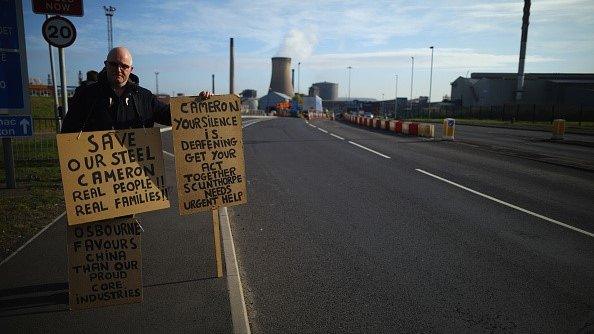
- Published19 October 2015
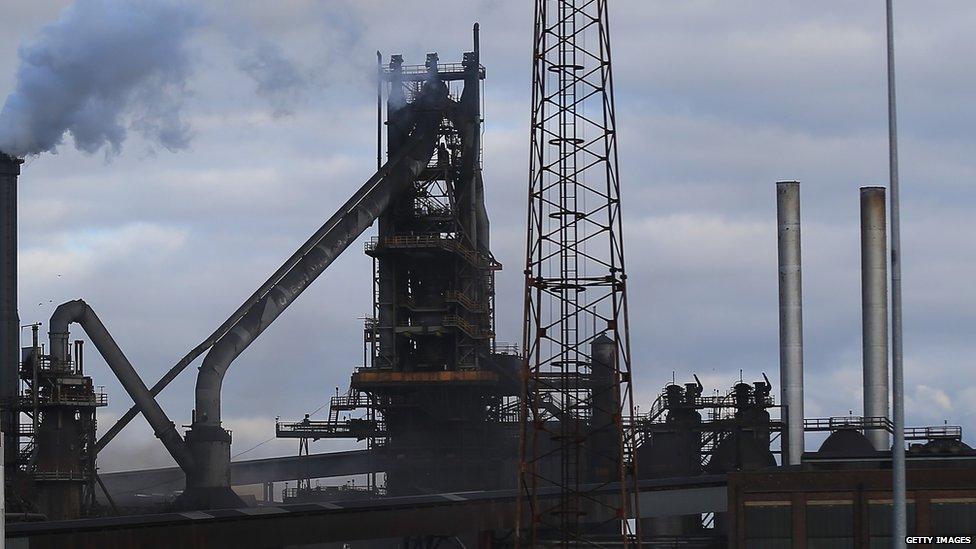
- Published12 October 2015
